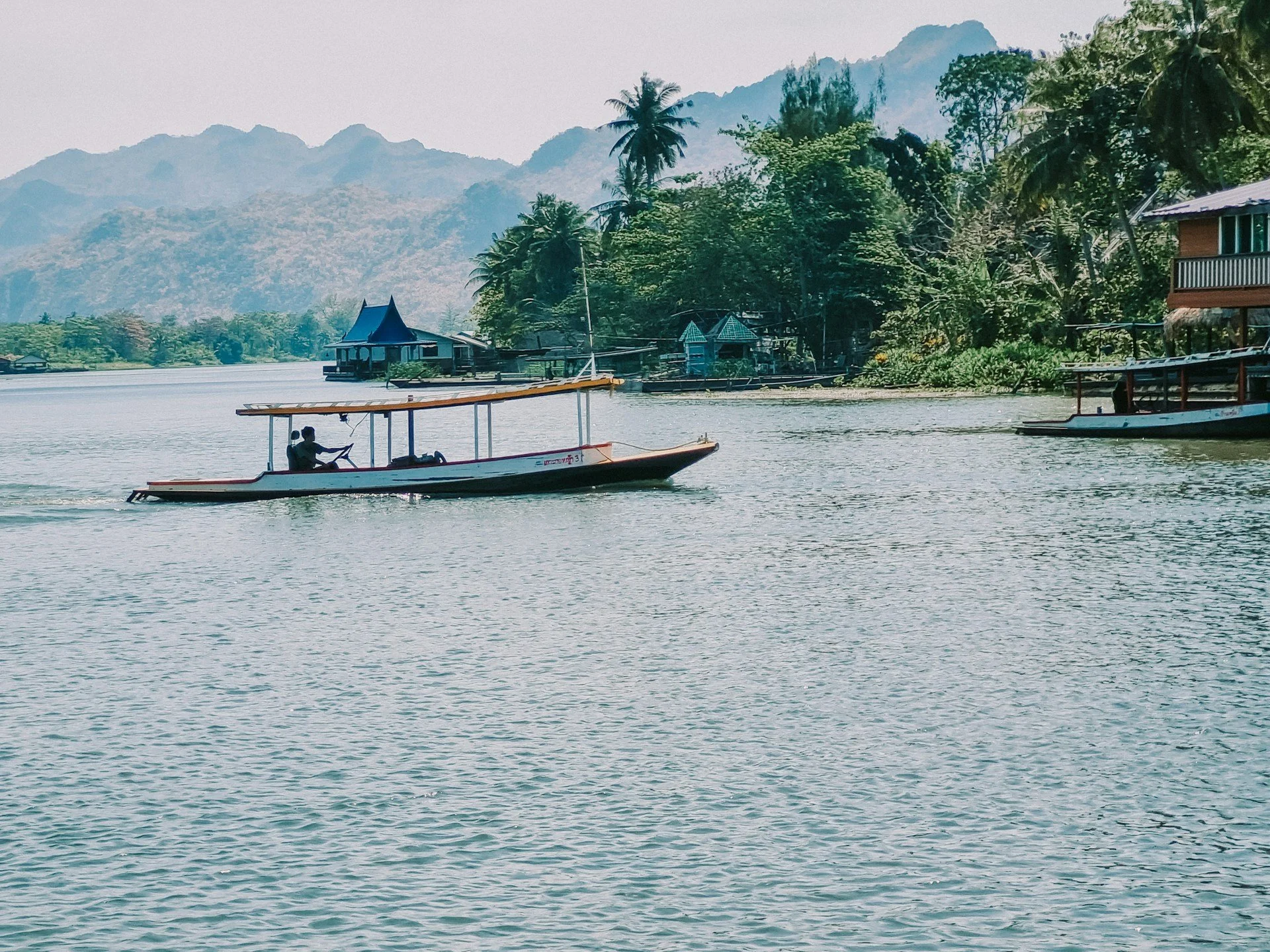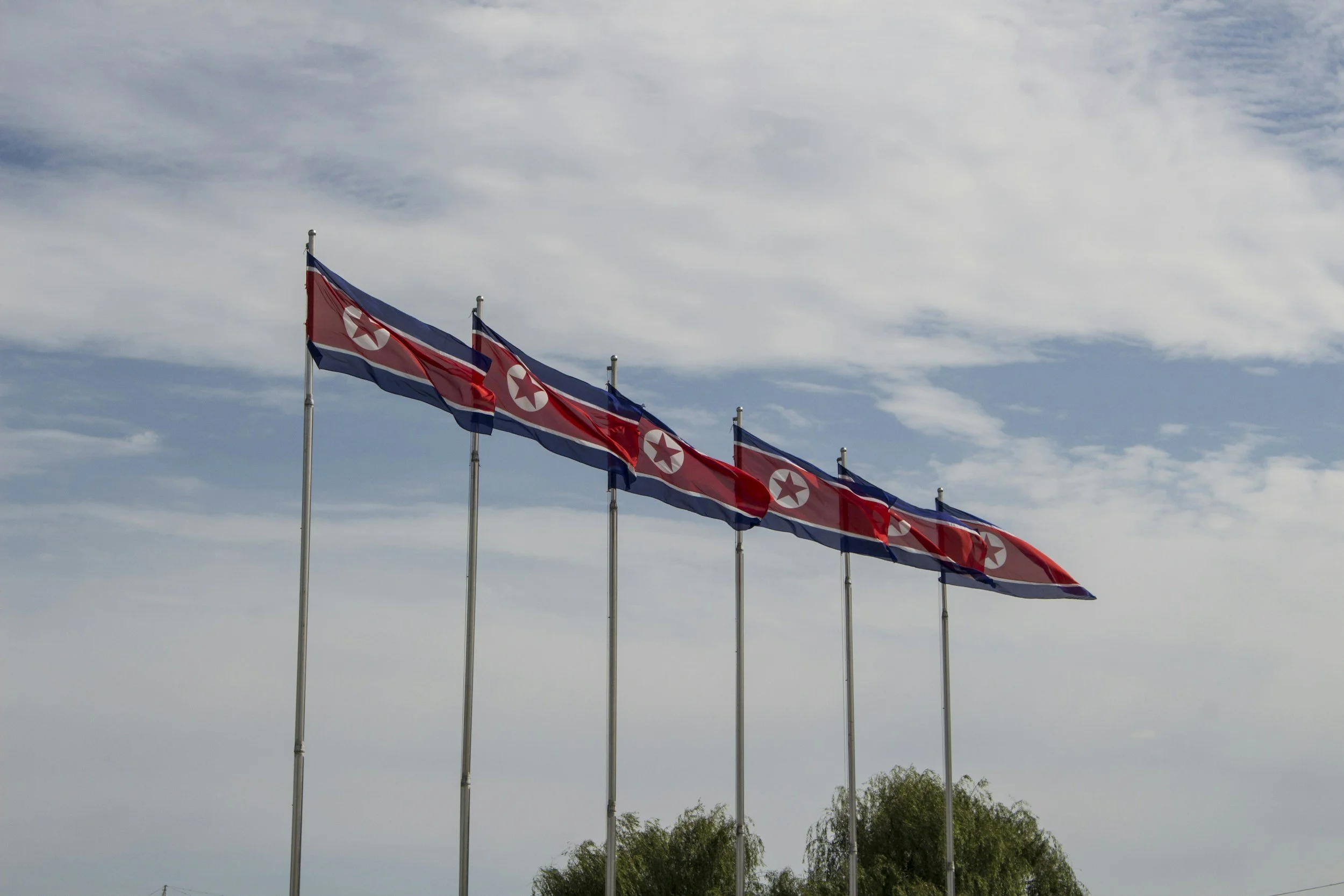North Korean Defectors in Thailand
Thailand has long served as a vital transit country for North Korean defectors en route to resettlement in South Korea. Defectors often travel thousands of miles through China and Laos, paying high fees to brokers and risking arrest and/or exploitation along the way.
As Thailand is not a party to the 1951 Geneva Convention on Refugees or its 1967 Protocol, North Koreans are not recognized as refugees. Instead, they are labelled as “illegal migrants.” Yet, Thailand maintains a pragmatic and humane de facto policy toward North Korean defectors — one that honors the principle of non-refoulement by avoiding their forced return to a regime where they would face severe punishment. In contrast to China, Thailand offers an informal yet comparatively safe corridor for those escaping the hermit kingdom and enduring perilous journeys across Asia.
A busy street in Bangkok, Thailand
a defector’s JOURNEY to thailand
The journey to Thailand typically begins with a covert crossing of the Tumen River from North Korea’s northern border into China. Using the modern day underground railroad, defectors travel more than 1,550 miles (2,500 kilometers) toward Laos, before crossing the Mekong River into Thailand. The Laos-Thailand corridor, particularly near the Golden Triangle, has become the most common entry point. The journey is not only dangerous but also financially burdensome. It is reported that North Korean defectors pay brokers as much as $3,000 USD to cross into Thailand.
One of the most perilous stretches of a defector’s journey is the crossing of the Mekong River. This wide, fast-moving river runs for approximately 1,146 miles (1,845 kilometers) along Thailand and Laos. In some sections near the border, it can span up to a mile across. Defectors typically cross the river at night using traditional Southeast Asian long-tailed boats, which are narrow, wooden vessels with exposed engines and hulls designed to sit low in the water. While this design allows for speed and maneuverability, it also makes the boats dangerously unstable. In many areas along the border, the riverbed drops steeply, generating strong undercurrents and unpredictable flow patterns that become especially treacherous during rough weather.
There are no life jackets, no lights and no distress signals as such precautions could attract attention from Laotian patrols. Like Chinese authorities, Laotian officials have a strong record of detaining and repatriating North Korean defectors, an outcome that can lead to imprisonment, torture or even execution back in North Korea. As a result, every moment on the river is a high-stakes risk. One wrong shift in weight or a sudden engine failure could be fatal. For many defectors, most of whom cannot swim and have never been on open water, stepping into one of these boats is not just terrifying, but a leap of desperation. Despite these risks, the crossing is a turning point, as reaching Thai soil offers the hope of safety and resettlement, not refoulement.
temporary stay in thailand
Rather than deporting defectors back to Pyongyang or their entry countries such as Laos or Myanmar, Thai authorities discreetly facilitate their transfer to South Korea through coordination with the South Korean embassy. Therefore, upon reaching Thailand, many surrender to authorities – sometimes even committing minor crimes intentionally – to initiate the transfer process. Once arrested, defectors are fined typically 2,000 baht (approximately $61 USD) and sentenced to one month’s imprisonment, most often at Bangkok’s Immigration Detention Center (“IDC”).
Yusung Park, a defector who fled the regime in 2008, recalls a surprising experience upon reaching Thailand. With detention centers full, local police told him to "have fun elsewhere first," as there were no available cells. Left in an unusual limbo, Park sat in front of the police station asking to be taken into custody and spent approximately 16 days travelling around Thailand in relative freedom, even enjoying a foot massage by the Mekong River. This period of unexpected liberty was both surreal and unsettling, given he would have lived in constant fear of arrest and repatriation while in China and Myanmar.
Although defectors often describe their temporary stay in Thailand as a “gateway to heaven,” life in Thai detention centers can be far from idyllic. Overcrowding, poor sanitation and limited access to healthcare are persistent issues. Detainees frequently face the burden of paying out-of-pocket for hospital visits and must often settle for the catch-all remedy of “Paracetamol (or Tylenol) for everything.” Even though the South Korean embassy provides food, limited aid and logistical support to North Korean defectors during their one-month detention period (which is often beyond one month due to processing delays) before flying them to South Korea, they are excluded from Thailand’s National Screening Mechanism thus lack access to formal asylum procedures or rights under international refugee law. Moreover, the transfer system imposes strains on Thai resources, with the former Immigration Bureau Head Lt. Gen. Nathathorn Prousoontorn calling the growing number of defectors a “long-term burden,” citing concerns over using taxpayers’ money for their care. Thus, this leaves defectors vulnerable to changes in policy or shifts in diplomatic priorities in the long run.
NUMBER OF north korean DEFECTORS
When other escape routes – such as through Myanmar and Vietnam, which consistently repatriate defectors to North Korea, or even Mongolia, which has an inconsistent record and sometimes chooses to return defectors as a sign of goodwill toward Pyongyang – become increasingly dangerous, Thailand emerges as the “easiest country” and most reliable transit hub for North Korean defectors seeking help. It is reported that approximately 90 percent of North Korean defectors passed through Thailand into South Korea around a decade ago. However, there are no official statistics to confirm this figure in recent years, as the Thai government deliberately keeps a low profile regarding its involvement in the defector route to minimize the risk of retaliation or diplomatic protest from North Korea while preserving the safety of defectors in Thai custody. In fact, it largely stopped releasing official data after the number of arrivals peaked at over 2,482 in 2011.
According to reports from the UN Office of the High Commissioner for Human Rights, only 196 North Korean defectors arrived in South Korea – most likely via Thailand – in 2023, with another 181 recorded between January and September 2024. Though not officially recorded by the Thai government, these figures offer a more realistic representation of defectors who successfully reached Thailand, in contrast to China, where many remain in hiding and unregistered. In Thailand, defectors typically present themselves to authorities upon arrival to initiate the process of resettlement, making them more visible in recorded numbers compiled by monitoring organizations.
THAILAND-NORTH KOREA RELATIONS
Bangkok and Pyongyang established formal diplomatic relations on May 8, 1975. This marked a significant shift for Thailand, which had previously fought against North Korean forces as part of the United Nations coalition during the Korean War. The new ties emerged in the context of Thailand’s improved relations with China and broader post-Vietnam War realignments.
Throughout the years, the relationship has fluctuated. The 1990s saw greater engagement: North Korea sought economic partners amidst post-Soviet isolation, and Thailand saw value in economic diplomacy and its growing role in the Association of Southeast Asian Nations (ASEAN). In 1991, North Korea upgraded its Bangkok trade office to a full embassy — its largest in Southeast Asia. However, Thailand does not reciprocate with an embassy in Pyongyang, managing relations instead via its embassy in Beijing. Though Thailand supported North Korea's inclusion in the ASEAN Regional Forum in 2000, there have also been significant political tensions. One of the most notable incidents was the 1978 abduction of Thai national, Anocha Panjoy, by North Korean agents in Macau, which only came to light in 2003. Another serious strain occurred in 1999, when North Korean embassy staff in Thailand were ordered to detain a fellow diplomat, Hong Sun-gyong, accusing him of defrauding the Thai government of millions of dollars meant for a rice purchase from North Korea. Meanwhile, the Thai authorities viewed this as North Korea’s attempt to evade payment, and in response, expelled 11 North Korean diplomats and barred them from reentry. In recent years, Thailand has condemned North Korea’s nuclear tests, aligning with international norms. Yet, it continues a generally pragmatic stance by avoiding overt confrontation.
Economically, Thailand once ranked among North Korea’s top trading partners, particularly for rice exports. Trade peaked in the early 2000s, reaching $126.3 million USD in 2014. However, payment issues led to barter arrangements, debt offsets and even allegations of corruption in rice deals. Further, after North Korea’s nuclear tests, UN sanctions completely reshaped their trade relations. As a result of international and especially U.S. pressure, Thailand declared in 2017 that official trade had ceased. By 2023, Thai exports to North Korea had plummeted to just $1,380 USD.
Still, North Korea continued to exploit grey areas. North Korean-run restaurants in Thailand – though closed in 2023 – were, like those in China and Mongolia, suspected of laundering illicit funds. A 2024 UN Panel of Experts report also highlighted the use of Thailand as a base for sanctions evasion, including smuggling and front companies. One former North Korean diplomat was even indicted in the U.S. for his role in a sanctions-busting scheme linked to Thailand. Paradoxically, this helps create diplomatic space for Thailand’s de facto policy of facilitating North Korean defector transit without drawing harsh scrutiny from either Pyongyang or Washington.
THAILAND AND SOUTH KOREA’S SILENT STRATEGY
Leaked U.S. diplomatic cables suggest that there exists a discreet, informal agreement between Thailand and South Korea after the 2007 hunger strike by hundreds of detained North Korean defectors at the IDC. This protest, which was prompted by prolonged detention, uncertain futures and a lack of clarity over whether they would be sent to South Korea, repatriated to North Korea or resettled elsewhere, attracted international attention and pressure from human rights groups. In response, senior Thai and South Korean officials engaged in negotiations to resolve the crisis and established a more systematic, albeit informal, framework for managing defectors.
Central to this arrangement is the legal justification based on South Korea’s constitutional stance that all Koreans — regardless of whether they come from the North or South — are citizens of the Republic of Korea (South Korea). Thailand leveraged this interpretation to classify the transfer of North Korean defectors as a form of “deportation” of native Koreans back to South Korea, rather than as a politically sensitive act of granting asylum. This framing provides Thailand with a crucial diplomatic cover, allowing it to uphold international non-refoulement principles by avoiding repatriation to North Korea while preventing open hostility from Pyongyang. The hunger strike thus catalyzed the creation of a repeatable and diplomatic mechanism that offers a practical solution to enable a safe and largely unobtrusive transit of defectors through Thai territory to eventual resettlement in South Korea.




